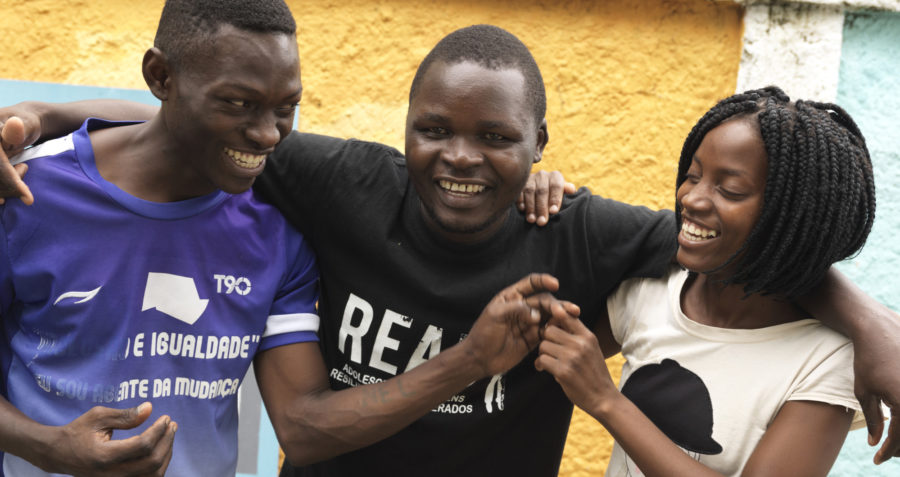Role models and agency: what young women want
 © Frontline AIDS/Peter Caton/2019
© Frontline AIDS/Peter Caton/2019
Adolescent girls and young women are among the hardest hit by the HIV epidemic and, in Mozambique, the rate of new infections among this demographic is worryingly high.
Although strides have been taken in Mozambique to reduce new HIV infections overall, the data currently tells an alarming story of gender disparity. In 2018, new HIV infections among young women aged 15-24 were almost double those among young men.
The situation is mirrored in eastern and southern Africa as a whole where, according to UNAIDS, 79% of new HIV infections among 10–19-year-olds were among females in 2017. An estimated 50 adolescent girls die every day from AIDS-related illnesses.
Young women and adolescent girls are often disproportionately affected by HIV because of the inequality that they experience culturally, socially and economically. They have higher odds of contracting HIV due to various factors including reduced access to information and gender norms that restrict their right to make decisions and ability to protect their sexual health.
The importance of role models
When Admira, 19, found out she was living with HIV her parents were supportive. But she then experienced such bad discrimination from her community that she decided it would be best to move away from home. Her father encouraged her to get in touch with Serviços Amigos dos Adolescentes (SAAJ) who run health clinics that are tailored for young people.
The staff at the clinics have experience of working with teenagers and offer packages of holistic care and support for young people living with HIV, using a peer-led model which centres on community adolescent treatment supporters (CATS).
Many CATS have used the HIV and sexual and reproductive health services in the past themselves and know the daily realities of living with HIV. The opportunity to talk to someone who has had similar experiences – and understands the priorities, influences and pressures that young people face – is an effective way of encouraging uptake of services among young people living with HIV. In addition, CATS are often confident, knowledgeable individuals that their peers can both relate to and admire.
The need for tailored services
Admira was introduced to one of the CATS, Fernando, who visited her at home to advise on treatment adherence and to provide health information and moral support. The visits proved a turning point and enabled her to accept her status, in contrast to some other young people that she knows who refuse to accept their HIV diagnosis and hide their medication under the bed.
Admira acknowledges that she found the antiretroviral therapy difficult to swallow in the first instance, literally so because of the size of the tablets. But now she is settled in her regimen and, having found an inner strength with the help of Fernando, has her sights set on becoming a nurse.
To reach more young women like Admira, bespoke strategies are required to support them. Ensuring access to HIV prevention services is critical, and education has a crucial role to play as uneducated girls are twice as likely to acquire HIV than those with some schooling.
Better integration of HIV with sexual and reproductive health services is needed. Young women and adolescent girls living with HIV need to be able to make informed choices about their treatment and key matters like family planning. Having more agency to negotiate decisions and determine their own lives is paramount.
Admira is a beneficiary of READY+ which is part of a portfolio of programmes that are designed to build Resilient and Empowered Adolescents and Young people (READY). The programme will reach up to 30,000 adolescents and young people living with HIV in Mozambique, eSwatini, Tanzania and Zimbabwe. Its focus is on increasing access to holistic care and support: promoting not only sexual and reproductive health and rights but also mental health in order to foster resilience.
Tags
Adolescent girls and young womenCommunity Adolescent Treatment Supporters (CATS)MozambiqueREADY
Will you help us end aids?
I would like to make a donation of:
Please enter the amount you would like to donate, ie: '10.00'
